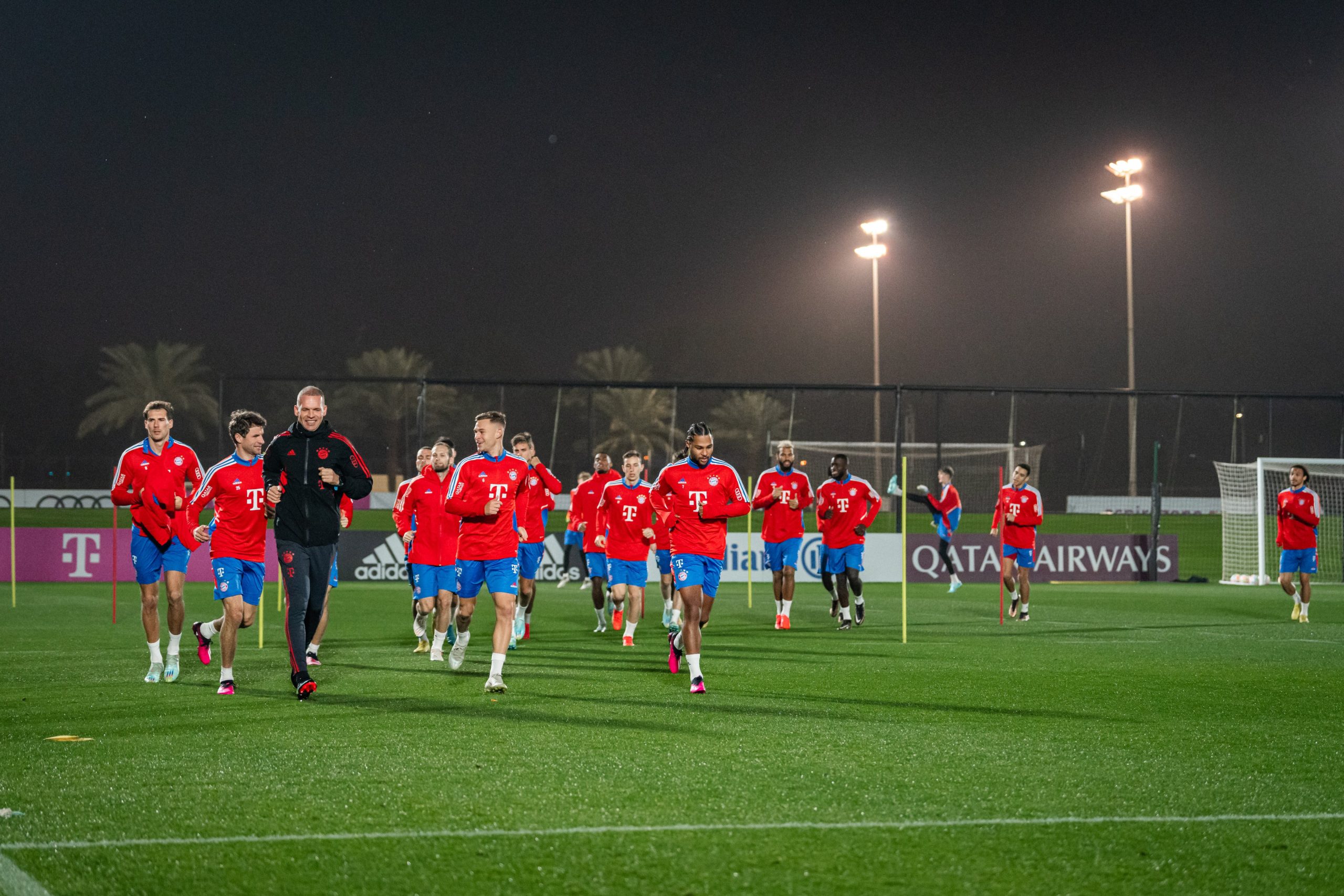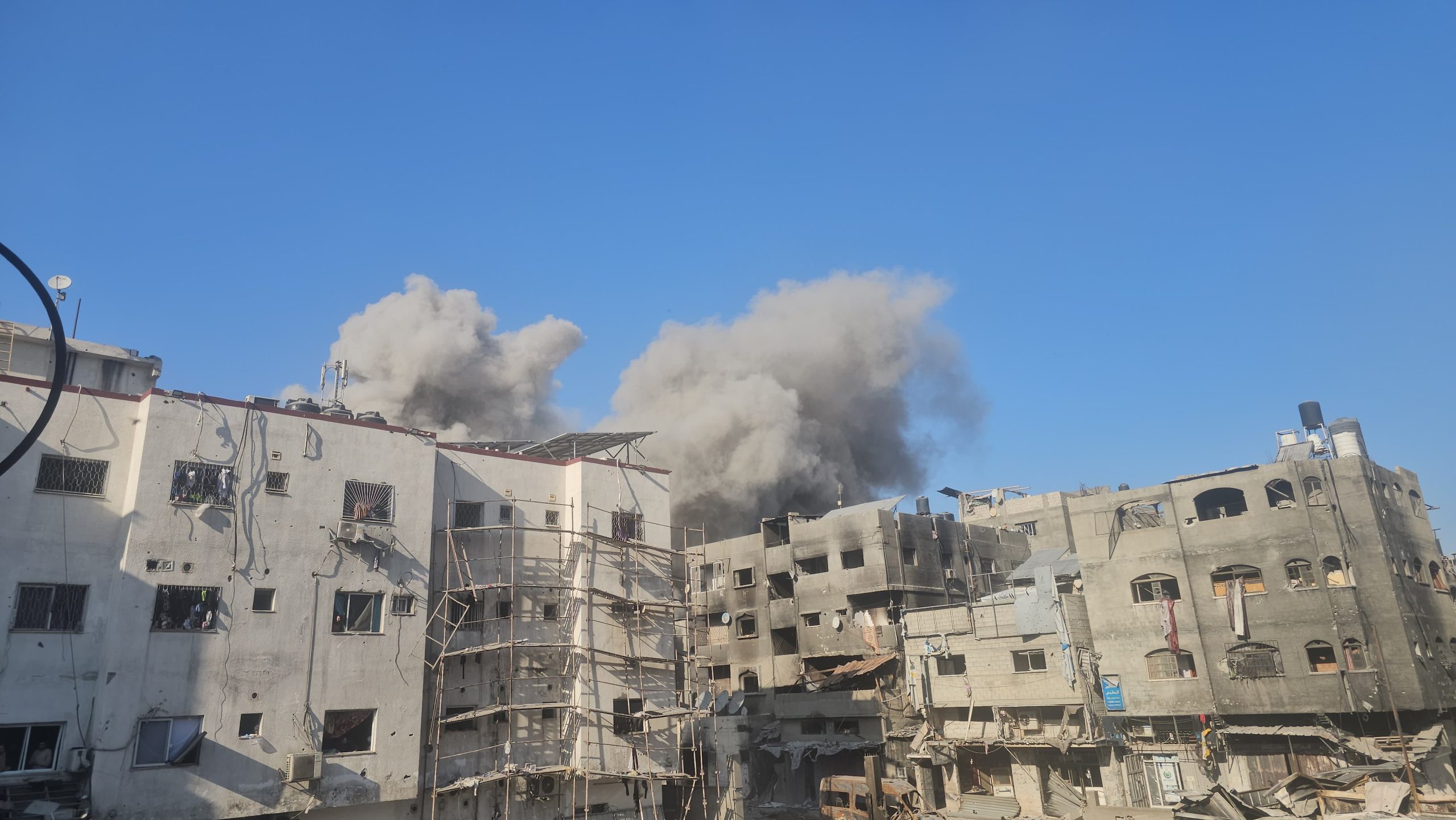Bayern has been criticised for its ties to Doha following allegations of human rights violations in Qatar.
Bayern Munich CEO Oliver Kahn said on Friday that the club is discussing whether or not it will renew its sponsorship agreement with Qatar Airways as the team flew to Doha for their annual winter training camp.
This is Bayern’s 11th winter training camp in Qatar, although the side skipped the visit in 2021-22 due to concerns of a heavily congested schedule.
Bayern has been under criticism for its sponsorship agreement with Doha’s flag carrier Qatar Airways, following alleged human rights issues in Qatar, particularly in the lead up to the 2022 World Cup in the Gulf nation.
Kahn told the German tabloid Bild that the partnership, which is set to expire at the end of the season, could be extended pending a review of “sporting, financial, and social” concerns, AFP reported.
“We will start the talks now,” the former German international goalkeeper said.
“First of all, it will be a matter of taking stock and then re-assessing each other’s interests. We will discuss sporting, financial and social issues.”
When Kahn was asked if an extension of the contract is guaranteed at this point, he clarified that the talks are still ongoing.
“As I said, we are now holding talks. We won’t be giving real-time updates.”
Qatar’s ‘positive transformation’
Qatar has engaged in sweeping reforms since rights organisations have shed light on its widespread mistreatment of migrant workers.
Since 2018, Qatar’s government and the International Labour Organization have collaborated on labour reform, drawing applause from the UN agency as well as rights groups and world leaders.
Among the most major steps was the dismantling of the controversial Kafala System which stopped workers from freely transferring jobs.
Authorities also set a minimum wage of 1,000 Qatari riyals and introduced a unified platform for complaints and disputes, which allows for workers to submit reports against violations on the ground.
Officials say scrutiny targeting the Gulf state has largely ignored such progress, and have have pointed to the criticism stemming from racist motives given Qatar’s role as the first Arab and Muslim country from the region to host the World Cup.
Doha’s envoy to Washington Sheikh Meshal bin Hamad Al-Thani said last month said the FIFA World Cup Qatar 2022 was able to “break down cultural barriers and misperceptions” throughout the major tournament, the first to ever take place in the Middle East.
He also said the Gulf state “has always been open to criticisms and new ideas, and acted swiftly to address challenges.”
“We embraced engagement with critics and worked closely with international experts, including the International Labor Organization, to introduce sweeping reforms at a remarkable pace. Progress on the ground has been highlighted through regular, independent ILO reports,” he said.
In July, Kahn defended the team’s partnership with Qatar Airways, contesting that its collaboration with Qatar has contributed to a positive transformation in the oil-rich Gulf state, citing Qatar’s labour reforms.
“I think very much has happened,” Kahn said, in response to questions from Bayern supporters regarding Qatar’s contested human rights violations.
“Because we’re sitting here today and discussing this very important topic.”
‘German embarrassment’
In November 2021 during the lead up to the World Cup in Qatar, Bayern Munich fans club protested its sponsorship deal with Qatar Airways at the the annual general meeting.
Bayern’s players wear the national carrier’s logo on their jersey sleeves as part of a sponsorship agreement that is supposed to expire in 2023.
In Qatar, the German national side backtracked on a promise to wear a ‘One Love’ armband in support of human rights and diversity, blaming the decision on threats of on-field sanctions from FIFA.
In the pre-match photo before the first game of the tournament, the German side posed with their hands covering their mouths, issuing a statement that they had been silenced by the sport’s governing body.
Described as “the German embarrassment” at the World Cup, the protest was widely criticised, with former Arsenal manager Arsene Wenger taking aim at the Germans.
“You know when you go to a World Cup, you know you can’t lose the first game. The teams who have the experience to perform in tournaments like France and England played well in the first game,” Wenger said.
“The teams who were mentally ready, with a mindset to focus on competition, and not the political demonstrations.”
Germany was eliminated at the group stage for the second-successive World Cup but the team denied it was distracted by off-field events.







